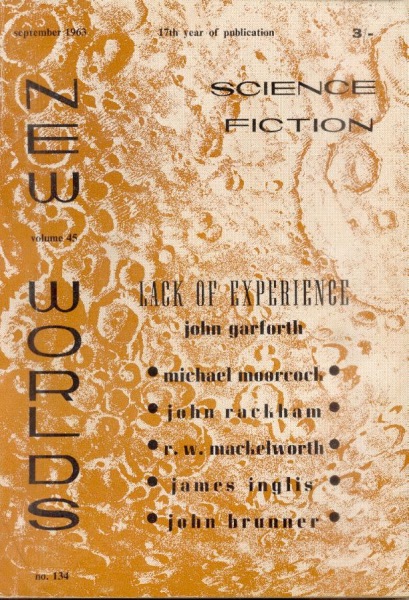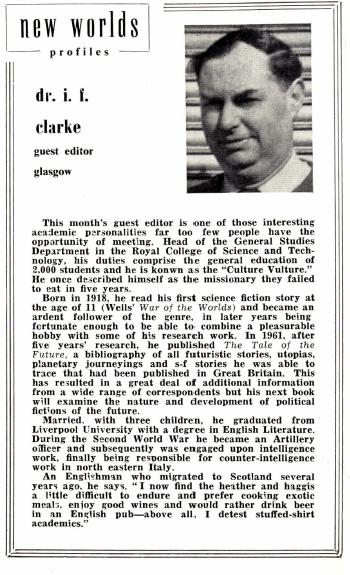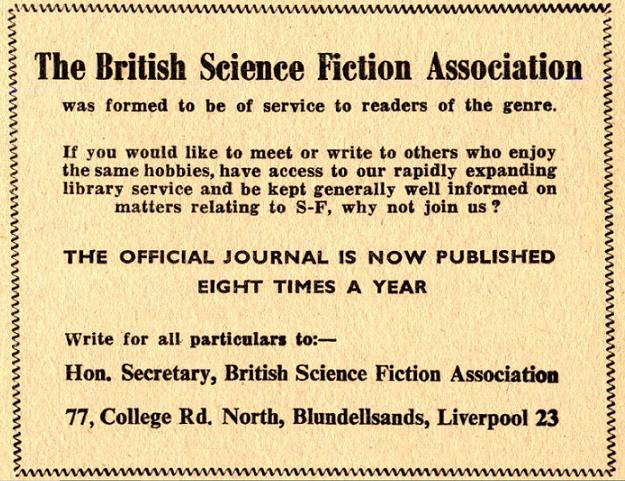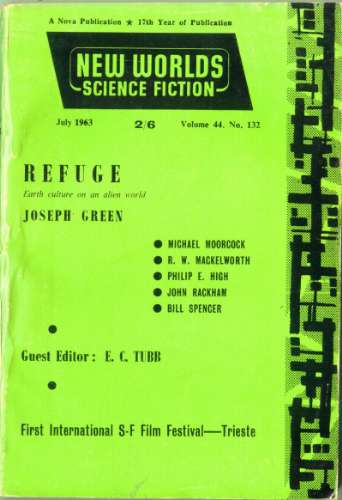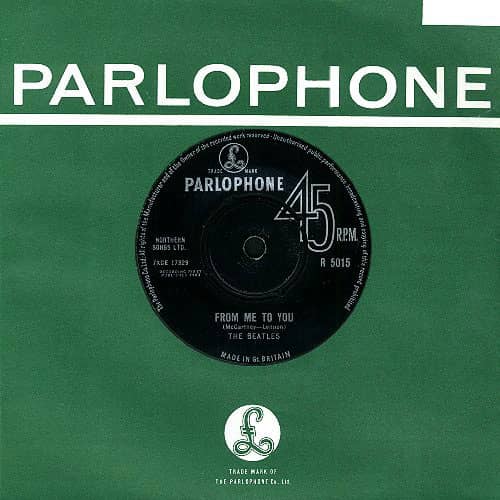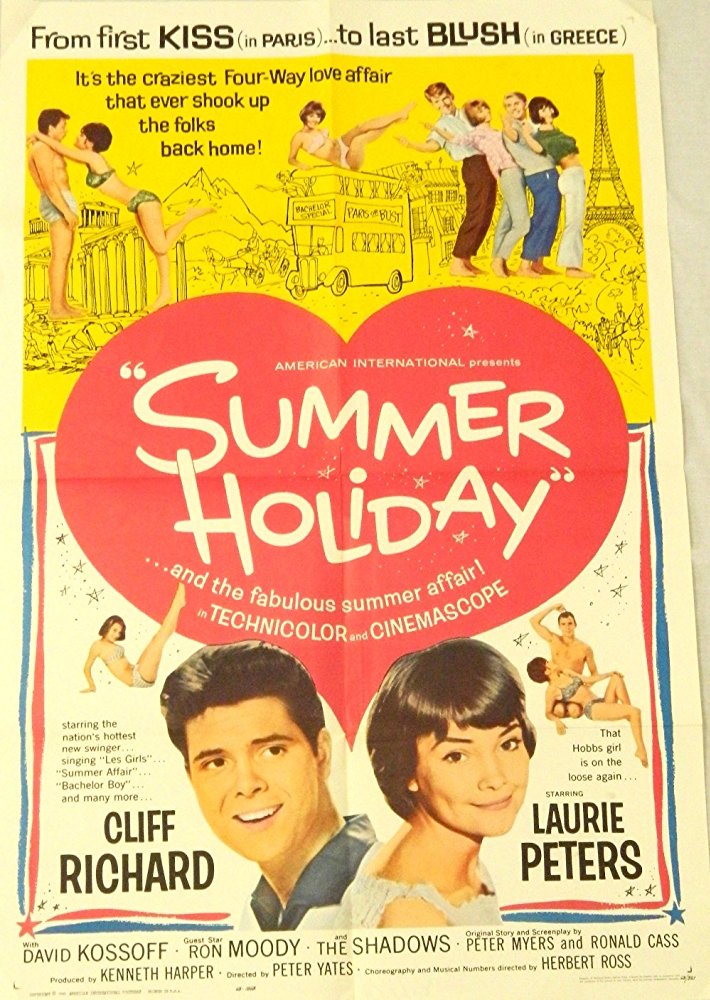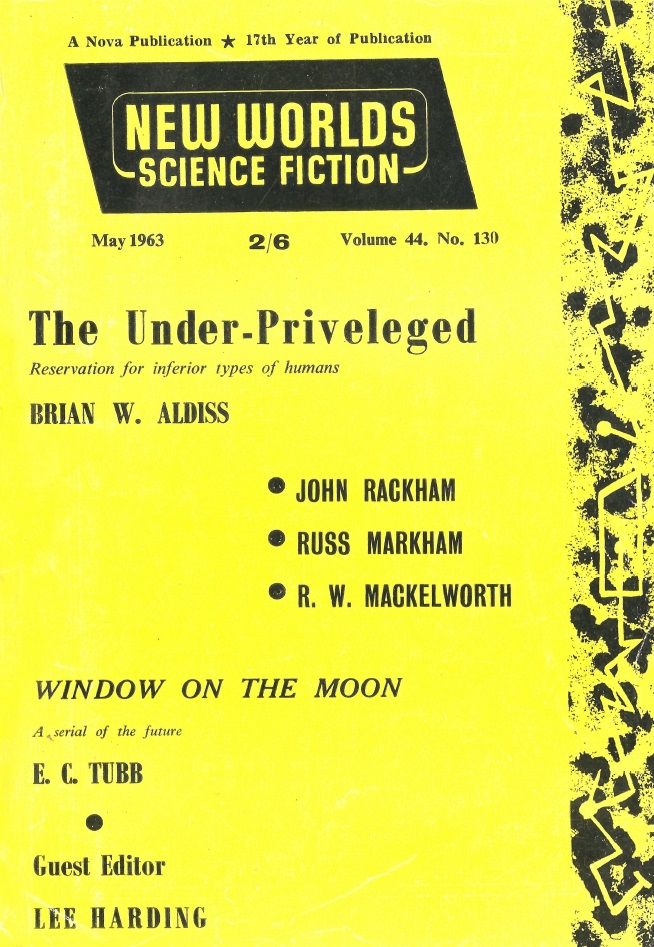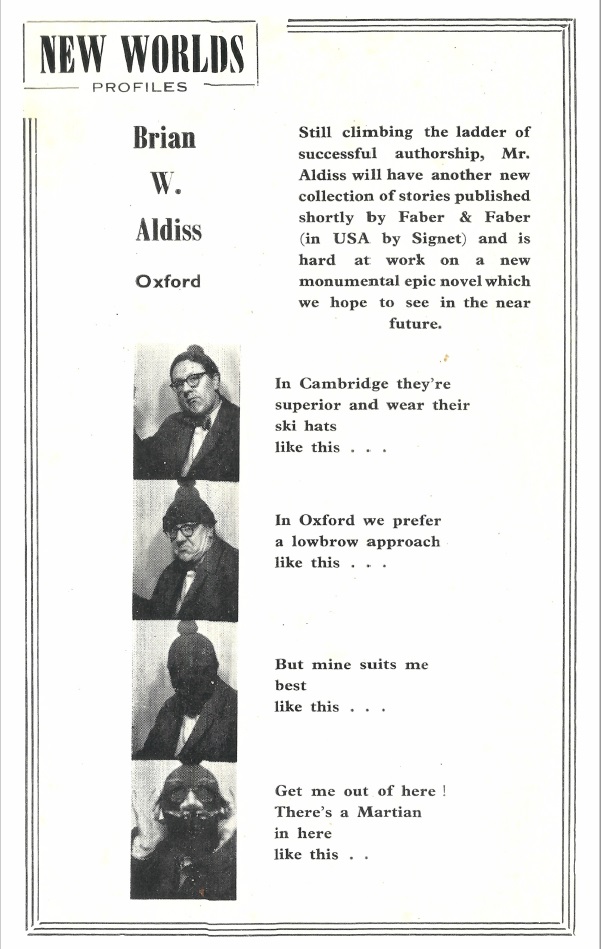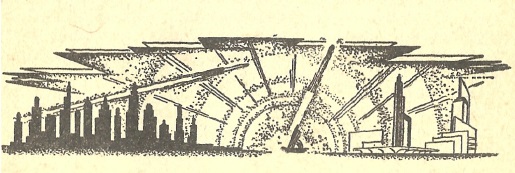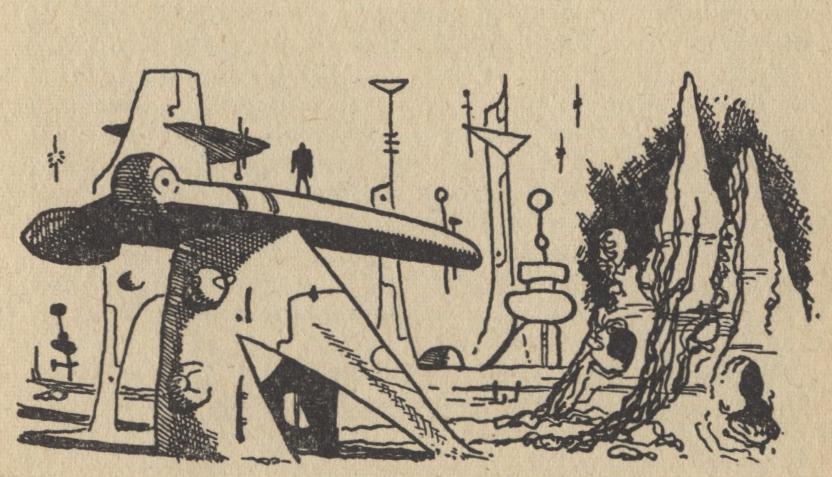
by Mark Yon
London Calling
Hello again!
The Winter rolls on here in Britain. I must admit that last month’s news about New Worlds has left me here in a bit of a blue mood. I’ve realised that with the loss of the two remaining British magazines there’s not a lot of opportunities for British s-f left. As much as I enjoy reading your American issues, even the ones fellow travellers don’t like (when I can get them), I do feel that we’re missing a trick here. The loss of such a laudable attempt to reinvent the genre means that we are lesser for it. Even when I don’t like all the attempts to push the envelope.
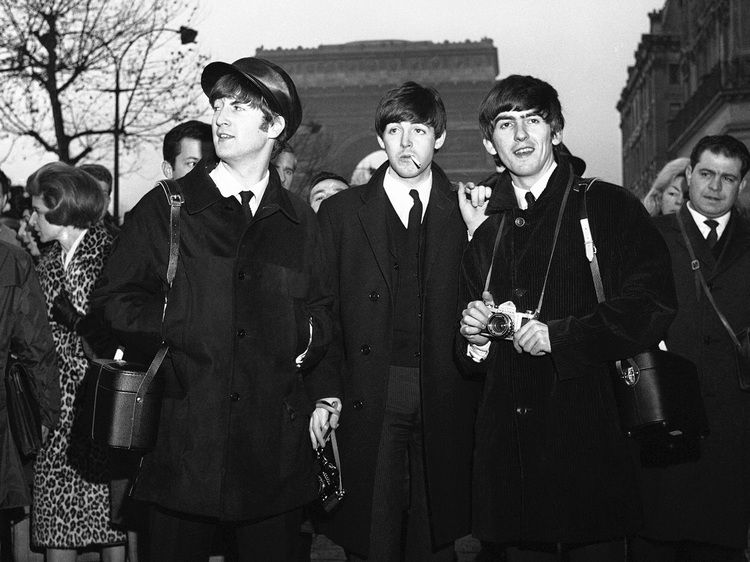
In this month’s “Beatle-Watch”, the mop-tops have continued their reign of madness and world domination. They are now playing concerts outside Britain, most recently in Paris. I understand that they may well be heading back to your fair shores by the end of February, so keep an eye out if you want an idea of what their fans here are going mad about.
Since we last spoke, I did get chance to go with the family to see The Sword in the Stone over the holiday season. It was fun, but there’s not too much of Mr. T. H. White’s original novel left beyond the basic outline. The youngsters in the cinema seemed to enjoy it, though, especially with the added musical numbers.
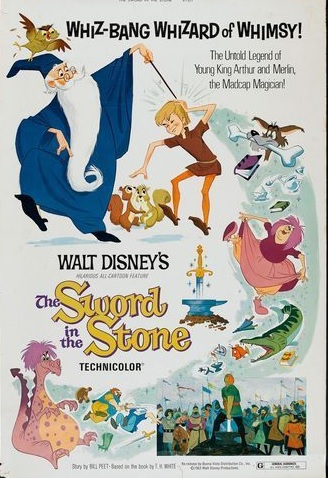
I’m very pleased that Doctor Who has continued to go from strength to strength. As fellow traveller Jessica has said, the latest serial, The Daleks, is a real triumph. It is scary and exciting. I can’t wait to see what happens next.

The Issue at Hand
To the magazine, then – the February 1964 New Worlds:
I’ll not say much about the cover this month, other than it is orange.
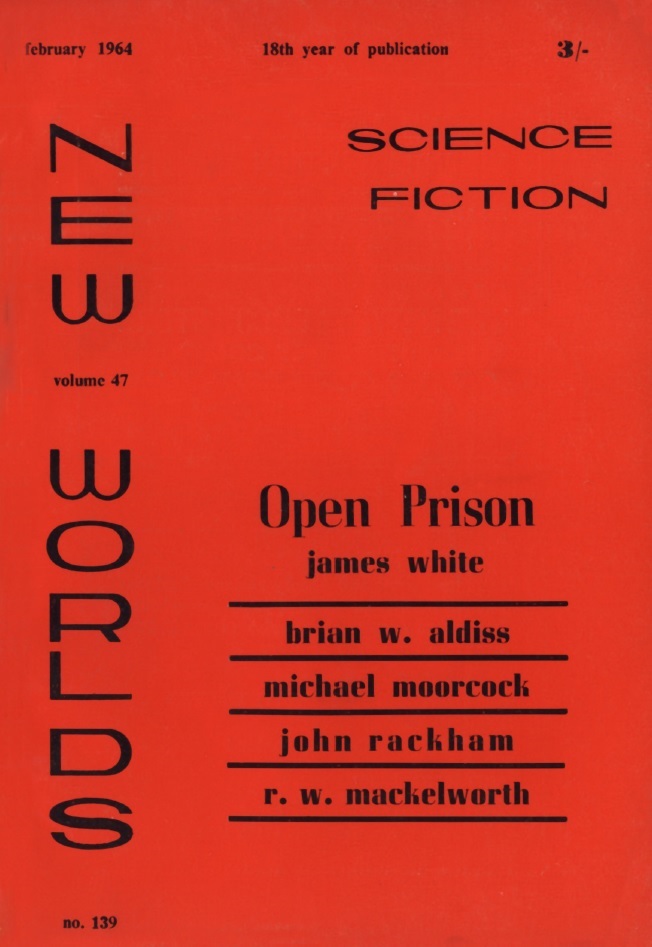
possible worlds of the mind, by Mr. L. H. Barnes
Intriguingly, but perhaps expectedly, this is heralded as “the last in our series”. Mr. Barnes examines the role of s-f in today’s society. After suggesting a number of possibilities – escapism, the continuity of myth, for an insight into the possible extensions of technology – Mr. Barnes concludes with the idea that the mainstreaming of s-f contributes to modern man coping with a world-in-flux. It is an effective summary of editor Mr. John Carnell’s aims as you could expect.
Onto the stories!
open prison, by Mr. James White
I guess that this could be the last serial to be published in New Worlds, but as is usually the case with Mr. White’s work, it’s an interesting tale, though very different to Mr. White’s Sector General stories. This one tells of a planet that is used as a prisoner-of-war camp and the prisoners upon it. What makes it interesting is that we have tension created between those prisoners who have given up and decided to make the best of their new lives and those who feel that it is their duty to escape. It seems to be really a comment on social class and the order and discipline of the military life. Well told, if hardly original. Even the tagline suggests that this is an old-fashioned war story transmuted into a future prison escape story. 4 out of 5.
counter-feat and one-way strait, by Mr. Brian W. Aldiss
Next, we have two short stories back-to-back from the redoubtable Mr. Aldiss. They are simply short logic puzzles in a science-fictional setting. Goofy fun, typical Aldiss, but relatively minor work from this well-loved author. 3 out of 5.
the unexpected martyr, by Mr. R. W. Mackelworth
This story looks at a revolution through the eyes of an anarchist recordkeeper in a future surveillance society. Could they be thinking of a future Russia, perhaps? I liked this one – a nice tone with a pleasing style in the manner of Orwell’s 1984 – in that it shows how important the minor characters are in moulding and changing society, though it seems to suggest that trusting your female descendants is not advisable. 4 out of 5.
the time dweller, by Mr. Michael Moorcock
Mr. Moorcock’s latest is, like his story Flux in the July 1963 issue, a story that deals with time. Set in a far future wilderness, the story tells of the journey made by a warrior, The Scar-faced Brooder. Whilst travelling this barren wasteland the Brooder discovers that he can travel through time, in the timestreams, based on his own will. It repeats an idea proposed by Mr. Moorcock before, that the notion of Time is a state of mind and will change depending upon context. Echoing both Mr. Jack Vance and Mr. Edgar Rice Burroughs, I found this tale to be vividly imaginative, very similar to Mr. Moorcock’s Elric tales. It is also a salutary lesson in the dangers of obsessing about keeping to time. 4 out of 5.
die and grow rich, by Mr. John Rackham
Like Mr. Mackelworth’s story, Mr. Rackham’s tale is another piece utilizing computerization this month. die and grow rich is a story for anyone fed up with filling out insurance applications, set in a future where insurance policies are computerized. When the computer seems to malfunction, one of Mr. Rackham’s ‘X-persons’ is brought in to help sort it out. It becomes, basically, an insurance scam in a very unusual manner. This seems to be an extreme method to obtain money for research, even when the research involves bringing dead people back to life. More worryingly, it is another story whose underlying message seems to be “Don’t trust women”. 3 out of 5.
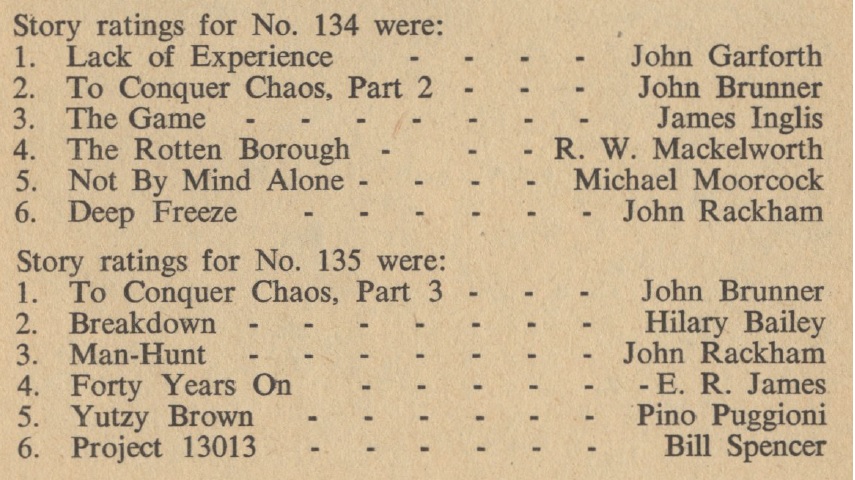
Lastly, this month’s Book Reviews. Mr. Leslie Flood looks at the books this time around. It is a very positive set of reviews this month. Mr Brian Aldiss’s The Dark Light Years shows an author reaching his “literary maturity” and is thoroughly recommended. The story collection Spectrum III edited by Messers. Amis and Conquest is ”a splendid collection” and Mr. Flood cannot praise too highly Mr. Damon Knight’s ambitious project A Century of Science Fiction, a useful summary for the aficionado and “a masterly and knowledgeable introduction to science fiction for the new convert.“
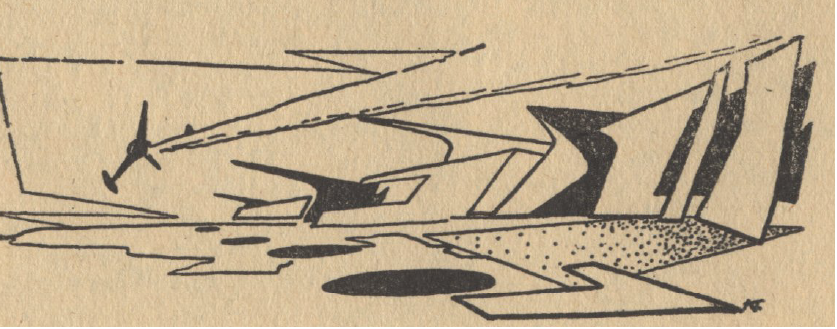
The Upshot
In summary, there’s a couple of strong stories here that I really liked and Mr. White’s serial has potential. New Worlds may be going, but it is clearly determined not to go without a fight.
Until next month.
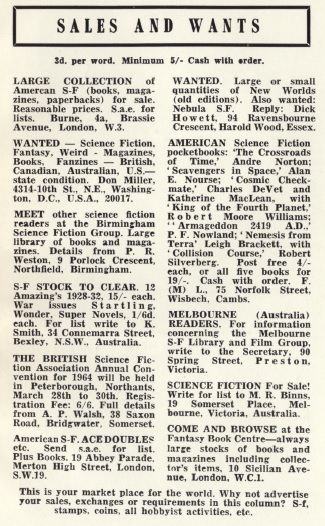

![[January 28, 1964] Beatles, Prisons and Doctors ( <i>New Worlds</i>, February 1964)](https://galacticjourney.org/wp-content/uploads/2019/01/640128cover-652x372.jpg)

![[November 27, 1963] … Death, Doctors and Mythology ( <i>New Worlds, November 1963</i>)](https://galacticjourney.org/wp-content/uploads/2018/11/631127cover-672x372.jpg)
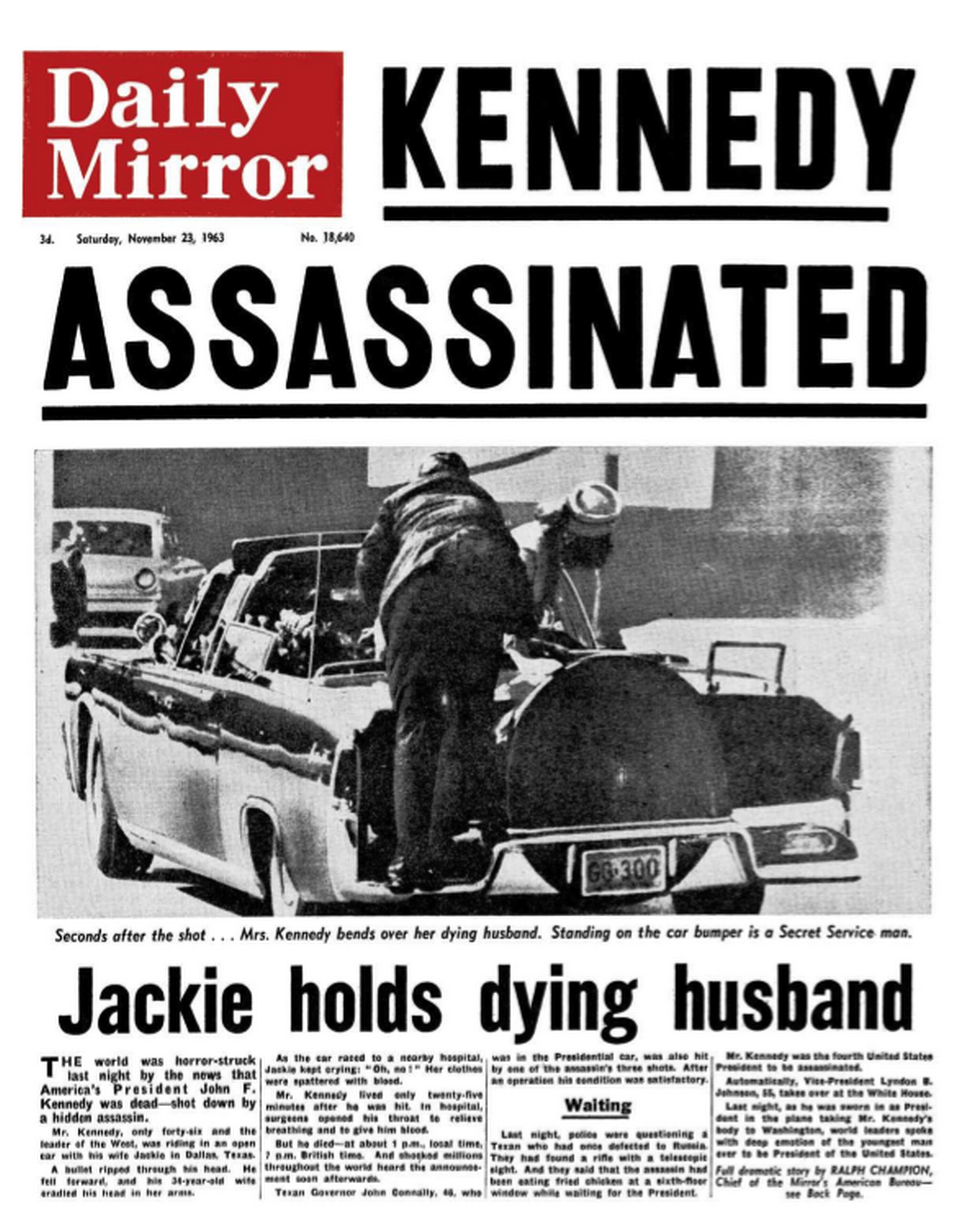





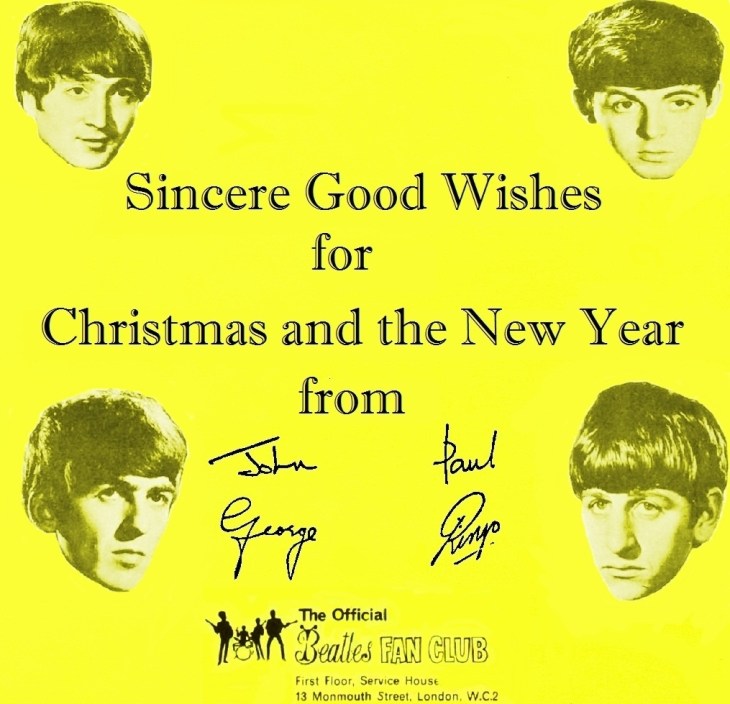
![[August 27, 1963] Ups and Downs #2 <i>New Worlds, September 1963</i>](https://galacticjourney.org/wp-content/uploads/2018/08/630827cover-409x372.jpg)
